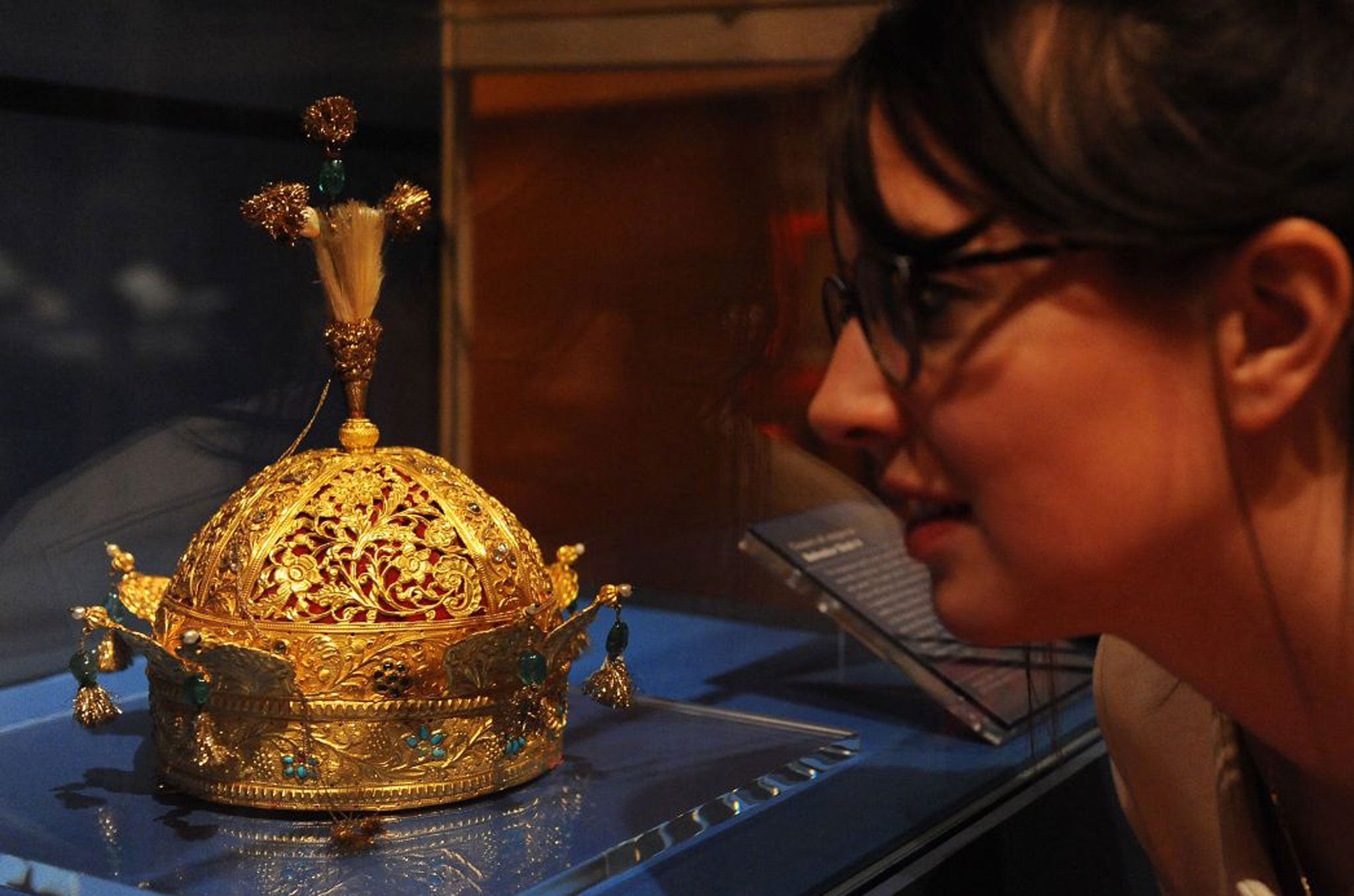Why do some cultures prefer small things? I think Tom Lubbock would have known
Plus: why we need a literary UEFA Champions League; and a grumble about Hollywood fact-twisting in Argo

It's mostly in art galleries that I miss my late friend Tom Lubbock, a former reviewer for these pages. And usually it's because I don't understand something and find myself wondering what he would have said about it. It happened the other day when I was walking round the British Library's lovely exhibition of art and artefacts from Mughal India. The troubling questions were these: what is it about some cultures that drives towards the small and the minute as an expression of luxury? And what is it about miniatures that so allures us? You could, after all, propose a rough dichotomy when it comes to expressing the magnificence of a regime in paint. Some cultures go for grand panoramas and wall-filling frescoes. Others – the Ottoman and Mughal among them – seem more inclined to the small and exquisitely detailed. One approach aims to overawe the spectator with sheer extension, the other with an act of compression, fitting more than you can quite believe into a couple of square inches of painted parchment. The Mughal exhibition is full of the latter effect.
I set about solving my confusion in a slightly perverse way, by looking through English Graphic, a recently published collection of Tom's writings on drawings, etchings and watercolours by English artists. Not Mughal painters, obviously, and only tangentially about fine detail in art. But then Tom didn't always supply a pre-cooked explanation in response to a question. His gift was for applying a brilliant and raking light to something that you thought was obvious and revealing new layers in it, just as art researchers sometimes do. English Graphic is full of that distinctive quality. Who else would start an essay on a Hilliard miniature like this? "Images are mostly not for looking at. They are for being there and having around." The mind demurs briefly, but then you think of all those millions of wallets with their tens of millions of photos of children – never looked at but magically indispensable all the same. The Hilliard essay also delivers this, which points towards one possible answer: "The miniature encapsulates its subject, turns a person into something that can be wholly enclosed, wholly held, wholly handed over." Thinking about those Mughal paintings there's something fitting in that. A fresco, even inside a palace, is common property. An exquisite miniature is more luxuriously private, an art work essentially designed to be seen by one person.
A long and wonderful essay about Thomas Bewick's woodcut vignettes (full of illumination about framing and edges and the unexpected psychology of the drawn line) also contains this, about the minuteness of detail that Bewick gets into his images: "Their wonder lies not in vision but in eyesight. They aren't pictures to be known at a glance. Their scale makes them a kind of secret to be probed." And that too hits squarely at the optical deliciousness of Mughal paintings, the sense that you'll never quite see minutely enough to see how the trick of depiction works. I still haven't worked the thing out but English Graphic helped a lot, as I knew it would. Curiously, the form of the book, rather than any individual piece in it, probably offered the best clue as to the seductive power Mughal paintings. Like the essays in this book those images are eminently graspable, presented with an utterly straightforward simplicity of line and clarity of description. There's no impasto in English Graphic, no overworked, painterly effects in the language to blur the perception of what you're looking at. Instead you get precision and a hairline niceness of discrimination. Both paintings and writing are the fixed traces of a remarkable act of human attention – and they induce the gratifying illusion, for as long as you concentrate on them, that your own attention is just as refined.
A writing contest to top them all...
I found myself wondering whether it was time for a literary equivalent of a UEFA Champions League the other day after looking at the recent winners of the Alfaguara Prize, the prestigious Spanish literary prize, awarded this year to Leopoldo Brizuela. I barely recognised any of the previous winners – and a quick look at recent winners of the German Book Prize, the Prix Goncourt and the Strega Prize reinforced the sense of literary cultures that almost never overlap. The Independent Foreign Fiction Prize already does its bit to break down the barriers for British readers. But what about a cupwinner's cup to push it a bit further?
Facts are as important as fun
When people grumble about Hollywood fact-twisting in "real life stories" the burden of indignation is usually felt on behalf of the traduced. So, in Ben Affleck's Argo the contention that the British Embassy refused to help the six escapees from the American compound turned out to be flatly untrue. But my indignation is reserved for the film itself, because the point at which a director opts for box-office expediency is almost always the point at which they give up the task of making an original film in favour of making one that we've all seen before. Argo is a lot of fun, but if Affleck had insisted on making the truth work on screen it might have been really good too.
Join our commenting forum
Join thought-provoking conversations, follow other Independent readers and see their replies
Comments
Bookmark popover
Removed from bookmarks